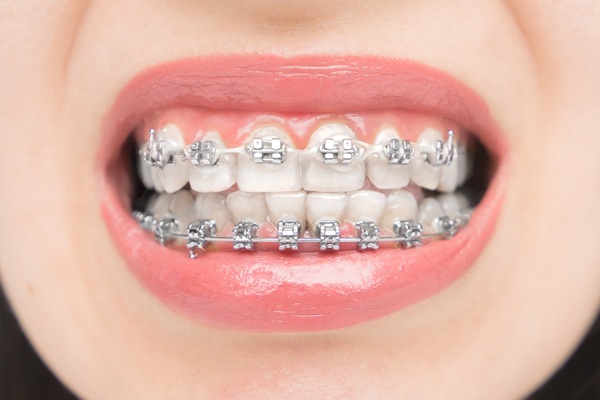Snoring is common, but when we talk about sleep apnoea, it is definitely more than just snoring or feeling tired after a restless night. Sleep apnoea is a serious condition that affects breathing during sleep, which disrupts rest and potentially leads to significant health problems if left untreated.
Sleep apnoea affects many people, but what others don’t know is when you ignore the signs and symptoms of this condition, the consequences can be severe and could impact your overall health and quality of life.
How about you? Do you think your snoring is just because you’re tired, or could it be sleep apnoea all along?
Let’s discover what sleep apnoea really is, the risks it poses to your health, and the available treatment options you can choose.
What is Sleep Apnoea?
Sleep apnoea is a condition where your breathing repeatedly stops and starts during sleep. These interruptions, called apnoeas, occur because your airway becomes blocked by the muscles in your mouth—this type of sleep apnoea is called obstructive sleep apnoea, the most common one. The other type of sleep apnoea is when your brain fails to send the right signals to the muscles that control breathing—this is called central sleep apnoea.
Common Symptoms of Sleep Apnoea
- Loud snoring
- Gasping or choking during sleep
- Excessive daytime fatigue
- Morning headaches
- Difficulty concentrating
- Mood changes or irritability
If you or someone you know experiences any of these symptoms, it’s important to consult a healthcare professional for an evaluation.
Highlight
Sleep apnoea is a condition that can seem like simple snoring when, in fact, it’s a more serious health issue. It is when breathing repeatedly stops and starts during sleep, often due to airway blockages (obstructive sleep apnoea) or issues with brain signals (central sleep apnoea).
The Consequences of Untreated Sleep Apnoea
After learning about the different signs of sleep apnoea, it’s alarming for many people to know that breathing is the number one aspect that’s affected by this condition. That’s why there are serious consequences to it when this condition is not given the proper attention it needs. Because if it is left untreated, it may have serious consequences for your physical and mental health.
Let’s look at some of the risks associated with untreated sleep apnoea.
1. Cardiovascular Problems
Untreated sleep apnoea puts extra strain on your heart and blood vessels. The repeated drops in oxygen levels during apnoeas can increase blood pressure and raise the risk of:
- Hypertension (high blood pressure)
- Heart attacks
- Irregular heartbeats (arrhythmias)
- Stroke
2. Daytime Fatigue and Accidents
Sleep apnoea disrupts restful sleep, which makes you feel tired during the day even with complete 8-hour sleep. Persistent fatigue can affect your ability to focus, which increases the likelihood of accidents, particularly while driving or operating machinery.
3. Poor Mental Health
Untreated sleep apnoea is linked to mental health challenges, such as:
- Anxiety
- Depression
- Memory problems
- Difficulty concentrating
Over time, these issues can significantly impact your quality of life and relationships.
4. Weakened Immune System
We all know that sleep is essential for maintaining a healthy immune system. When you are sleep deprived or have diseases like obstructive sleep apnoea (OSA), research has shown that it can increase your rates of getting hospitalised as sleep apnoea can weaken your body’s defences. In other words, sleep apnoea can make you more prone to illnesses and infections.
5. Metabolic Disorders
Untreated sleep apnoea can contribute to insulin resistance and increase the risk of developing type 2 diabetes. It can also make managing existing diabetes more challenging.
6. Reduced Quality of Life
Sleep apnoea affects more than just your health—it can also lead to strained relationships due to snoring or irritability. Over time, untreated sleep apnoea can interfere with your ability to enjoy everyday activities.
Highlight
When sleep apnoea is ignored, it can lead to even concerning issues, including heart problems, fatigue-related accidents, mental health challenges, weakened immunity, and metabolic disorders like diabetes.
It also affects quality of life, causing strain in relationships and reduced daily enjoyment.
Sleep Apnoea Treatment Options
Sleep apnoea can affect many aspects of your health and well-being, not just your breathing during sleep. The good news is many doctors and specialists have made significant contributions on which treatments are available to manage sleep apnoea and reduce the impact on your life.
Here are some common approaches:
1. Lifestyle Changes
If your untreated sleep apnoea is not that severe yet, making healthy changes to your routine can reduce the severity of it in your well-being. These include:
- Losing weight, if needed
- Avoiding alcohol and sedatives before bedtime
- Sleeping on your side instead of your back
- Establishing a consistent sleep schedule
2. Continuous Positive Airway Pressure (CPAP)
One of the most common treatments available for people with sleep apnoea is getting a CPAP. A CPAP machine delivers constant airflow through a mask, which keeps your airway open during sleep. While it can be bulky and may take some time to adjust with the machine, CPAP is one of the most common and reliable treatments for sleep apnoea.
3. Oral Appliances
Oral appliances from dentists may also be helpful to counteract your sleep apnoea condition. Opt to get custom-fitted oral appliances from dentists as an alternative for mild to moderate cases of obstructive sleep apnoea. The way these devices work is they reposition your jaw to keep the airway open during sleep.
If ever you’re in Bellevue Hill, or the surrounding areas, you can visit our dental clinic at Bellevue Hill Dental to help you with your personalised mouthguard.
4. Surgery
In severe cases, surgery may be recommended to remove or reduce excess tissue in the airway, adjust jaw alignment, or address other structural issues that may cause your sleep apnoea.
5. Regular Monitoring and Follow-ups
Regardless of the treatment your doctor recommended, regular check-ups are still essential to monitor progress and make necessary adjustments to your care plan.
Highlight
Sleep apnoea can be managed through various treatments depending on its severity. Lifestyle changes, such as weight loss and sleeping on your side, can help mild cases. CPAP machines provide consistent airflow to keep airways open, while custom-fitted oral appliances reposition the jaw for mild to moderate cases. Surgery may be the best recommendation for severe cases of sleep apnoea.
Sleep Apnoea Treatment Can Change Your Life
Untreated sleep apnoea is a serious condition that can impact nearly every aspect of your life. Various pieces of evidence have shown that it can affect your mental health, heart health, and even your relationship with your loved ones.
Indeed, the consequences of untreated sleep apnoea can be very concerning—but the good news is that there are also different treatments available at your disposal, like customised mouthguards.
If you think mouthguards are the right option for you, you can talk to our skilled and experienced dentists at Bellevue Hill Dental. We’re here to help you breathe easier and sleep better with our tailor-fitted mouthguards.
Talk to our dental professionals now to see if this is the best option for your condition.



